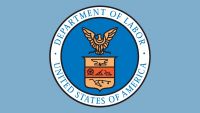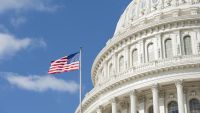Rebuilding Gulf Coast Shouldn't Cost Families
By Representative Jeb Hensarling
 The 2005 hurricanes will undoubtedly represent the most devastating and costly natural disasters in American history. Our thoughts and prayers continue to be with those along the Gulf Coast and Florida who have lost their homes and their livelihoods. In the aftermath of this terrible tragedy, I believe Congress must do everything necessary to attend to the immediate needs of those who are still suffering.
The 2005 hurricanes will undoubtedly represent the most devastating and costly natural disasters in American history. Our thoughts and prayers continue to be with those along the Gulf Coast and Florida who have lost their homes and their livelihoods. In the aftermath of this terrible tragedy, I believe Congress must do everything necessary to attend to the immediate needs of those who are still suffering.
The federal government clearly has an important role to play in providing emergency relief. In fact, Congress has already approved more than $62 billion in assistance. Today the debate in Washington is not about the size of the check we should write for emergency relief; it is a question of from whose account the funds are drawn.
There are only three ways for Congress to pay for the emergency spending for hurricane relief: raise taxes, increase the deficit or tighten the belt of the federal government. But, at a time when our country is experiencing historic economic growth and record job gains, raising taxes would only hurt more Americans and cost more jobs. Likewise, adding to the deficit would simply compound a human tragedy of this generation with a fiscal tragedy for the next.
That leaves trimming the federal budget. Today, the federal debt stands at a staggering $7.9 trillion, or roughly $26,700 for every man, woman and child in America. Unfortunately, the nation's financial challenges are about to get markedly worse over the next decade. Without reform, Medicare, Medicaid and Social Security will soon grow out of control, far outstripping our country's economic growth and our ability to pay for them. The Government Accountability Office has stated that we are currently on a path to double taxes on the American people in 30 years simply to balance the budget.
Clearly, during these trying times, Congress must use its head as well as its heart to help keep America strong. We cannot continue to fund projects like the $50 million indoor rainforest in Iowa or $223 million more for bridges to nowhere in Alaska. There is simply too much waste, fraud, abuse, duplication and low priority spending in the federal budget for Washington to stand idly by while people on the Gulf Coast are suffering.
We also cannot afford to pass the buck to the next generation. If emergency spending for natural disasters is a federal responsibility, shouldn't the federal budget bear the burden, instead of American families or future generations? While it may not be the most politically expedient path, offsetting emergency spending with funding from lower-priority and less essential federal programs is possible. In fact, it was congressional practice throughout the 1990s.
That is why I recently proposed to offset the cost of the latest hurricane relief package by shaving two to three pennies off each dollar in federal spending over the next five years. My proposal would exempt entitlement spending such as Social Security and Medicare, as well as defense, homeland security and veterans' funding. No part of this proposal would have denied one penny of relief to the Gulf Coast, nor have delayed it one minute. Soon Congress is expected to take up a similar proposal offered by the Republican leadership.
No one can put a price tag on the cost of this human tragedy, but we can and should find a way to pay for it without forcing future generations to bear the burden. It is not right to ask millions of Americans who cannot vote, or who have not yet been born, to make sacrifices tomorrow because the government refuses to make them today.
About the Author
Congressman Jeb Hensarling, R-Dallas, is a member of the House Budget Committee and the chairman of the Republican Study Committee's Budget and Spending Taskforce.


















